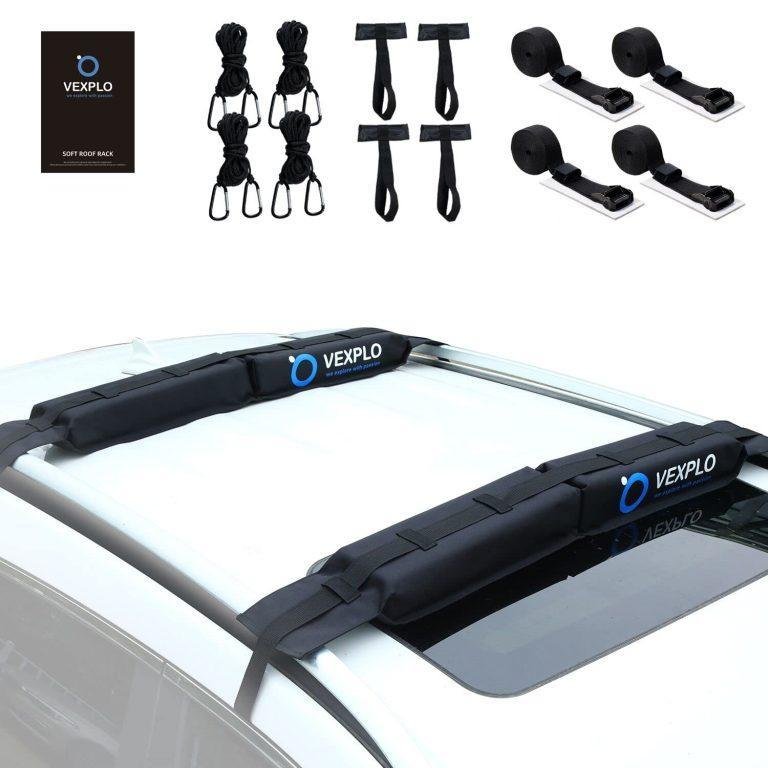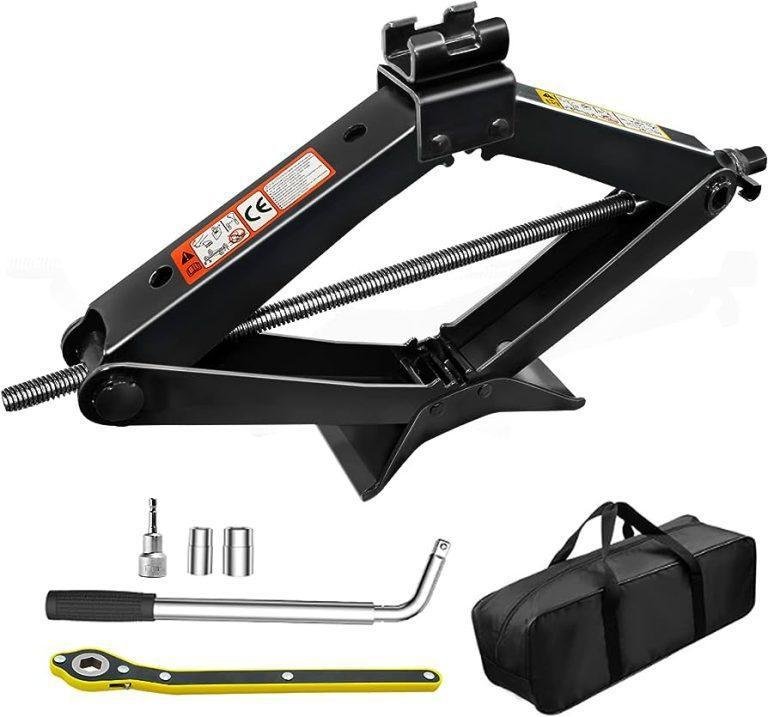Hitch receivers come in various sizes, including 1-1/4″, 2″, and 2-1/2″. These different sizes enable compatibility with a range of towing needs.
Hitch receivers are used in vehicles to connect trailers, bike racks, and other towing accessories. Their size is determined by the opening of the hitch tube, allowing different classes of hitches to be used for different towing capacities. The most common size is the 2″ hitch receiver, which is widely used for towing medium to large trailers and recreational vehicles.
The 1-1/4″ hitch receiver is typically found on smaller vehicles and is commonly used for lightweight towing applications. The 2-1/2″ hitch receiver is less common and is primarily used for heavy-duty towing requirements.

Credit: store.lci1.com
Standard Hitch Receiver Sizes
Hitch receivers come in standard sizes such as 1-1/4 inch, 2 inch, and 2-1/2 inch, making it important to find the right fit for your vehicle and towing needs. These different sizes ensure compatibility with various hitches for safe and secure towing.
Understanding Hitch Receiver Classifications
Hitch receivers come in various sizes and classifications to accommodate different towing needs. Each classification is designed to handle specific loads, ensuring safety and efficiency. By understanding these classifications, you can select the right hitch receiver for your towing requirements.
Exploring The Most Common Hitch Receiver Sizes
Hitch receivers are categorized based on their size, which is determined by the inside width and height of the receiver tube. The most common sizes include:
- Class i: Light-duty applications
- Designed for small trailers and accessories
- Maximum tow weight: Up to 2,000 pounds
- Maximum tongue weight: Up to 200 pounds
- Class ii: Moderate-duty applications
- Suitable for mid-sized trailers and accessories
- Maximum tow weight: Up to 3,500 pounds
- Maximum tongue weight: Up to 300 pounds
- Class iii: Medium-duty applications
- Ideal for larger trailers and accessories
- Maximum tow weight: Up to 6,000 pounds
- Maximum tongue weight: Up to 600 pounds
- Class iv: Heavy-duty applications
- Designed for heavy trailers and accessories
- Maximum tow weight: Up to 10,000 pounds
- Maximum tongue weight: Up to 1,000 pounds
- Class v: Very heavy-duty applications
- Suitable for the heaviest trailers and accessories
- Maximum tow weight: Up to 20,000 pounds
- Maximum tongue weight: Up to 2,400 pounds
Whether you need to tow a small utility trailer or a large camper, it’s crucial to choose a hitch receiver that matches your vehicle’s capabilities. Selecting the appropriate hitch receiver size ensures safe and efficient towing, preventing any unnecessary strain on your vehicle.
Remember to refer to your vehicle’s owner’s manual for specific towing capacities and guidelines when selecting a hitch receiver. With the right hitch receiver, you can confidently tow your trailers and accessories with ease and peace of mind.
Specialty Hitch Receiver Sizes
Hitch receivers come in various sizes to accommodate different towing needs. Choose from a range of specialty hitch receiver sizes to ensure a perfect fit for your vehicle and trailer.
Examining Specialized Hitch Receiver Sizes
Hitch receivers come in various sizes to accommodate different towing needs and vehicle types. In addition to the standard sizes, there are also specialty hitch receivers available, each with its own unique features and capabilities. Let’s take a closer look at some of these specialized hitch receiver sizes.
Class I/Ii Combo: Versatile Hitch Option
- Capable of towing light loads up to 3,500 pounds
- Ideal for compact cars, sedans, and small suvs
- Provides a versatile hitch solution for everyday towing needs
- Perfect for hauling bikes, small trailers, and cargo carriers
Class Ii/Iii Combo: Increased Towing Capacity
- Offers a higher towing capacity of up to 6,000 pounds
- Suitable for mid-size suvs, minivans, and some larger sedans
- Enables towing of larger trailers, boats, and equipment
- Equipped with both class ii and class iii hitch sizes for added flexibility
Class Iii/Iv Combo: Enhanced Versatility
- Designed to handle towing loads up to 10,000 pounds
- Suitable for larger suvs, trucks, and vans
- Offers increased versatility for towing a wide range of trailers and recreational vehicles (rvs)
- Utilizes both class iii and class iv hitch sizes for optimal towing capacity
Class Iv/V Combo: Extreme Towing Capabilities
- Built to handle heavy-duty towing up to 20,000 pounds or more
- Ideal for heavy-duty trucks and commercial vehicles
- Provides extreme towing capabilities for large trailers, fifth-wheel rvs, and equipment haulers
- Offers the highest towing capacity among specialty hitch receivers
Identifying Hitch Receivers For Specific Vehicle Types
Different vehicles have unique towing requirements and compatibility. Here are some specialized hitch receivers tailored to specific vehicle types:
Rv Hitch Receivers
- Specifically designed for recreational vehicles
- Features a sturdy construction to handle the weight and size of rvs
- Available in various sizes to match different rv models and towing capacities
- Allows you to safely tow your home away from home with ease
Atv/Utv Hitch Receivers
- Tailored for all-terrain vehicles (atvs) and utility task vehicles (utvs)
- Provides a secure attachment point for towing trailers or accessories
- Enables off-road enthusiasts to enhance their vehicle’s functionality
- Offers durability and strength to withstand rugged terrain
Truck Hitch Receivers
- Customized hitch solutions for pickup trucks
- Designed to match the towing capabilities and bed configurations of trucks
- Includes options for both standard and heavy-duty trucks
- Allows truck owners to maximize their towing potential and versatility
Specialty hitch receivers offer a range of options to cater to various towing needs and vehicle types. Whether you have a compact car, an rv, or a heavy-duty truck, there is a hitch receiver size available to enhance your towing capabilities.
So, choose the right hitch receiver for your vehicle and get ready to hit the road with confidence.
Factors To Consider When Choosing A Hitch Receiver Size
Choosing the right hitch receiver size requires considering factors like towing capacity and vehicle compatibility. Hitch receivers come in various sizes, allowing you to find the perfect fit for your towing needs.
Understanding The Importance Of Matching The Hitch Receiver Size To Your Towing Needs
Choosing the right size hitch receiver is crucial when it comes to towing. The hitch receiver acts as a connection point between your vehicle and the trailer, and it’s important to ensure a proper match. Here are some factors to consider when choosing a hitch receiver size:
- Towing capacity and tongue weight limitations:
- The towing capacity of your vehicle determines the maximum weight it can safely tow. It’s essential to select a hitch receiver that can handle the expected load without exceeding the vehicle’s towing capacity.
- Tongue weight refers to the downward force exerted on the hitch ball by the trailer. Different sizes of hitch receivers have varying tongue weight limitations. It’s important to select a hitch receiver that can safely support the anticipated tongue weight to ensure stability and control while towing.
- Compatibility of hitch accessories with different receiver sizes:
- Hitch accessories such as bike racks, cargo carriers, and trailer couplers are designed to fit specific hitch receiver sizes. Choosing the right size receiver ensures that you can easily attach and use these accessories without any compatibility issues.
- It’s essential to check the specifications of the hitch accessories you plan to use and ensure they are compatible with the hitch receiver size you choose.
- Considering future needs and potential upgrades:
- When selecting a hitch receiver, it’s prudent to consider your future towing needs and any potential upgrades. If you anticipate towing heavier loads or using different hitch accessories in the future, it may be beneficial to opt for a larger receiver size that offers more capacity and versatility.
- Vehicle manufacturer’s recommendations and guidelines:
- Vehicle manufacturers provide specific recommendations and guidelines regarding the appropriate hitch receiver size for their vehicles. It’s crucial to review these recommendations and adhere to them to ensure both safety and warranty compliance.
Remember, matching the hitch receiver size to your towing needs is essential for safety and optimal performance. By understanding factors such as towing capacity, tongue weight limitations, compatibility with hitch accessories, future needs, and manufacturer’s recommendations, you can select the most suitable hitch receiver size for your specific requirements.
Frequently Asked Questions For What Size Hitch Receivers Are There?
What Is The Most Common Hitch Receiver Size?
The most common hitch receiver size is 2 inches. It is widely used for towing and hauling purposes.
What Size Do Hitches Come In?
Hitches come in various sizes for different towing needs. Common hitch sizes include 1-1/4 inch, 2 inches, and 2-1/2 inches. The size you need depends on the weight of your trailer or camper. Smaller hitches are suitable for lighter loads, while larger hitches can handle heavier weights.
It is essential to choose the correct size to ensure safe and secure towing. Check your vehicle’s owner’s manual or consult with a professional to determine the appropriate hitch size for your specific towing requirements.
What Are The Three Most Common Hitch Sizes?
The three most common hitch sizes are 1-1/4 inches, 2 inches, and 2-1/2 inches. These sizes refer to the receiver tube opening of the hitch, where accessories like bike racks, cargo carriers, or trailer balls are inserted. The 1-1/4-inch hitch size is typically found on smaller vehicles like sedans or compact suvs, while the 2-inch size is more commonly used on larger suvs, trucks, or minivans.
The 2-1/2-inch hitch size is usually found on heavy-duty trucks or commercial vehicles. The hitch size you need depends on the type of vehicle you have and the towing or carrying capacity required for your accessories. Always check your vehicle’s owner manual or consult a professional to determine the correct hitch size for your needs.
What Size Receiver Is A Heavy Duty Hitch?
A heavy-duty hitch typically requires a receiver that is 2. 5 inches in size.
Conclusion
To conclude, understanding the size options available for hitch receivers is crucial when it comes to choosing the right one for your towing needs. Whether it’s the common 2-inch receiver or the larger 2. 5-inch or 3-inch options, each size serves a specific purpose.
The size of the hitch receiver directly affects the towing capacity and compatibility with various accessories, so it’s essential to match it with your vehicle’s requirements. Moreover, considering the class rating and weight limits associated with each size will ensure a safe and efficient towing experience.
Keep in mind, however, that not all vehicles are equipped with the same size hitch, so it’s important to check your owner’s manual or consult with a professional to determine which size is suitable for your specific vehicle. By doing so, you’ll be equipped with the knowledge to make an informed decision and enjoy trouble-free towing adventures.





